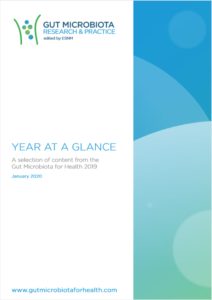Although gut microbiome science is moving progressively from the bench to the bedside, much research in the field has looked at cataloguing the composition and function of gut microbial communities, identifying correlations between microbes and disease, and using animal models to understand the causal involvement of the microbiome in host phenotype. In this regard, key developments include how host-microbe symbiosis is established in early life; gut microbiota-mediated mechanisms by which diet and cooking affect health; and metagenome-mining efforts to integrate gut microbiome analyses in the clinic for precision disease prevention, diagnostics and response to treatment.
Nowadays, efforts are under way to provide insights regarding the functional involvement of gut microbiome and its action mechanisms, with a special focus on integrating gut microbiome data into the clinical setting in order to make progress with developing gut microbiota-based therapeutics. A particular focus of interest in 2019 has been advancing translational research into probiotics and prebiotics, mainly in gut-related conditions but also in systemic indications, including the alleviation of metabolic syndrome and the modulation of brain function in response to social stress in healthy adults.
Milestones in the field in 2019 were matched by increased interest among the GMFH digital community in cutting-edge studies exploring how the gut microbiome could be harnessed to prevent or improve a wide range of conditions that current medicine is unable to cure. As a result, the GMFH digital community has reached 80,000 members, with more than 1,160,000 visits in 2019.
Why not take a look at this “2019 Year at a glance” report and learn more about the year’s breakthroughs

